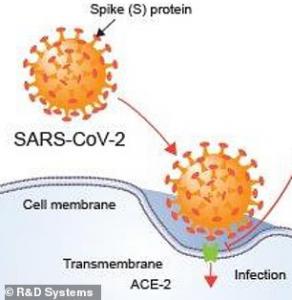Dr. David Samadi breaks down the stages of COVID-19 and best practices for treatment
Early detection, Intervention and treatment of Covid 19 is very critical. Different stages of this disease requires different treatments. Dr. Samadi
Dr. David Samadi, Director of Men’s Health and Urologic Oncology at St. Francis Hospital on Long Island, New York, has written extensively on COVID-19 since the lockdown began in March. As a urologist and surgeon, he’s emphasized the same way he treats prostate cancer early on before it advances complicating treatment and survival rates, is the same way this virus should be treated.
“Like any disease, early detection and early intervention of treating it to prevent spread of the virus, is the way to go and is ultimately key in reducing mortality,” exclaimed Dr. Samadi. “If you have symptoms, be proactive. Get tested as soon as possible. If you test positive, prevent this virus from taking control by starting treatment early on.”
To help understand the stages of COVID-19 and what treatments are recommended, Dr. Samadi has broken the advancement of COVID-19 into 3 stages: Stage 1 is when the virus is beginning to ramp up creating a lot of inflammation.
“At stage one, this is when a person may have symptoms of a fever, chills, shortness of breath, chest pain, and body aches,” explained Dr. Samadi. “At this very beginning stage, it’s important to start a treatment of providing an antiobiotic of either amoxicillin or z-pak helping prevent bacterial pneumonia.”
Reducing inflammation during stage one is critical to prevent a cytokine storm which is the most dangerous and potentially life-threatening event related to COVID-19. For stage one, Dr. Samadi also recommends zinc, hydroxychloroquine, and a bronchodilator such as Budesonide helping open up the lungs to reduce inflammation helping a person breathe better while fighting off the virus. Preliminary data also shows that Ivermectin in this early stage could be very effective.
Stage two is called viral replication or duplication. At this stage, the virus begins to replicate and duplicate throughout the body affecting many different organs.
“In this stage, the best medication available is remdesivir,” said Dr. Samadi. “This medication reduces the replication of the virus by blocking the RNA polymerase, a key enzyme the virus needs to replicate its genetic material to proliferate or multiply in our body. If it’s blocked, it essentially stops the spread. For young adults who’ve died from the virus, often from blood clots or stroke, blood thinning medications are now advised and recommended for those in this age category”
People hovering between stage 2 and stage 3, may also benefit from using convalescent plasma. “Plasma is the largest part of your blood making up about 55 percent of its overall content,” explained Dr. Samadi. “People who have recovered from COVID-19 develop antibodies which are found in plasma. Studies have found that plasma removed from these patients with antibodies, referred to as convalescent plasma, can be beneficial for some patients with severe COVID-19 boosting their ability to fight off the virus.”
If a person advances on to stage 3, multiple organ failure affecting the kidneys, heart, and lungs, has occurred. At this point, the prognosis is poor of only 20-30% of patients who reach this stage will recover. Back in March and April, placing these patients on ventilators was widespread. Since then and because of the poor prognosis once patients were ventilated, physicians have questioned their use stating that these patients could instead be treated with less intensive respiratory support.
“Studies show that instead of automatically relying on ventilators which take over the breathing for the patient, to instead consider placing patients who’ve advanced to stage three on dexamethasone which can reduce the risk of death by 30%,” said Dr. Samadi. “Mechanical ventilation is an invasive traumatic treatment and comes with risks such as severe lung damage. We now know that ventilators are not the right treatment for coronavirus.”
“I personally have added a stage 4 to recovery from COVID-19,” exclaimed Dr. Samadi. “The power of prayer. As a surgeon, I’ve operated on thousands and thousands of patients with prostate cancer with robotic surgery. My own personal belief and faith in God has been my guide as I take care of these men. As a result, I’ve had very, very low complications or issues with my patients. While I would like to take the credit, I know it belongs to this omnipotent power that takes over when we reach out in prayer. It’s helped me this far and I plan on continuing to use it.”
Dr. David Samadi is the Director of Men’s Health and Urologic Oncology at St. Francis Hospital in Long Island. He’s a renowned and highly successful board certified Urologic Oncologist Expert and Robotic Surgeon in New York City, regarded as one of the leading prostate surgeons in the U.S., with a vast expertise in prostate cancer treatment and Robotic-Assisted Laparoscopic Prostatectomy. Visit Dr. Samadi’s websites at robotic oncology and prostate cancer 911.
david b samadi
roboticoncology
+1 2123655000
email us here
Visit us on social media:
Facebook
Twitter
LinkedIn
Different stages of Corona Virus and treatment option Dr. Samadi's Conslusion
Legal Disclaimer:
EIN Presswire provides this news content "as is" without warranty of any kind. We do not accept any responsibility or liability for the accuracy, content, images, videos, licenses, completeness, legality, or reliability of the information contained in this article. If you have any complaints or copyright issues related to this article, kindly contact the author above.



